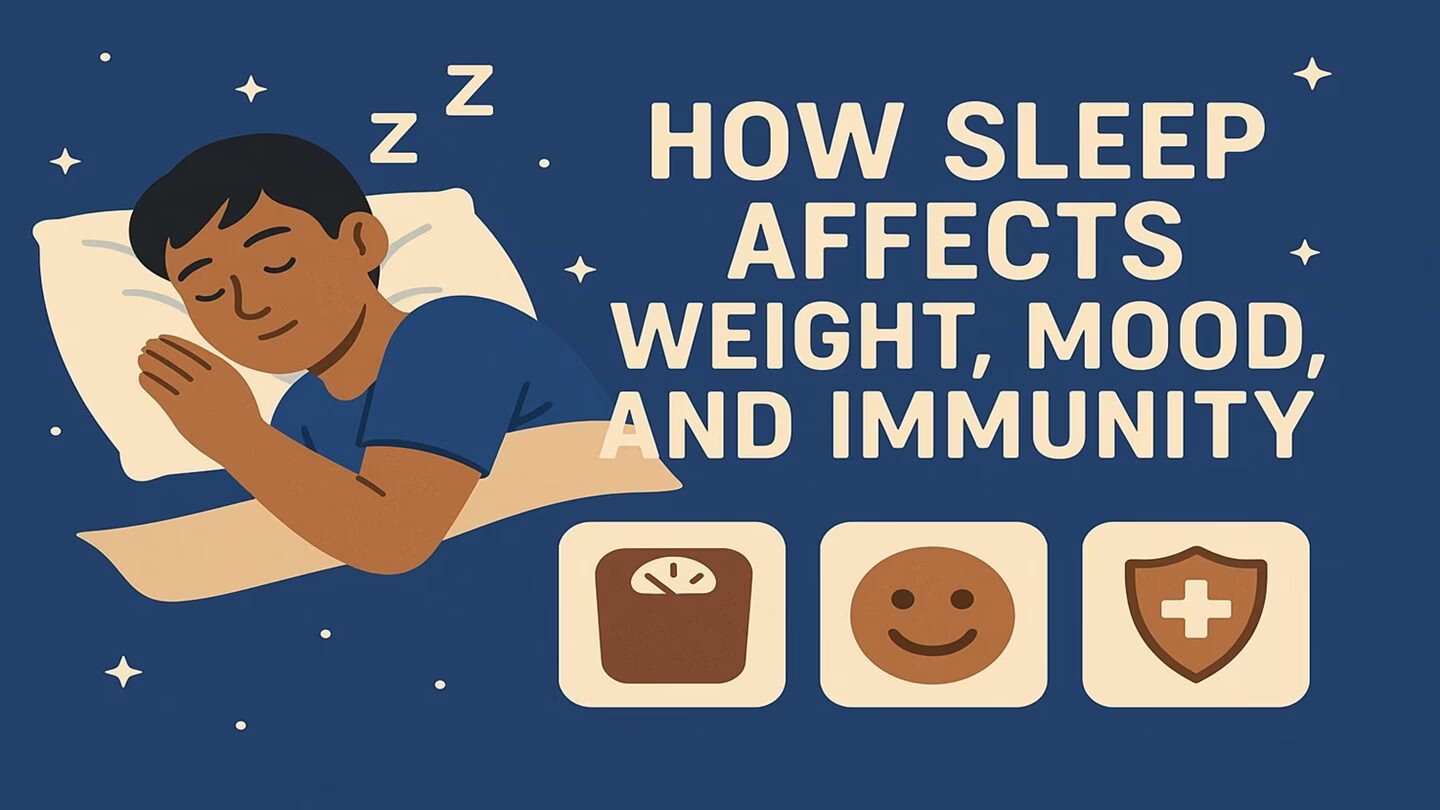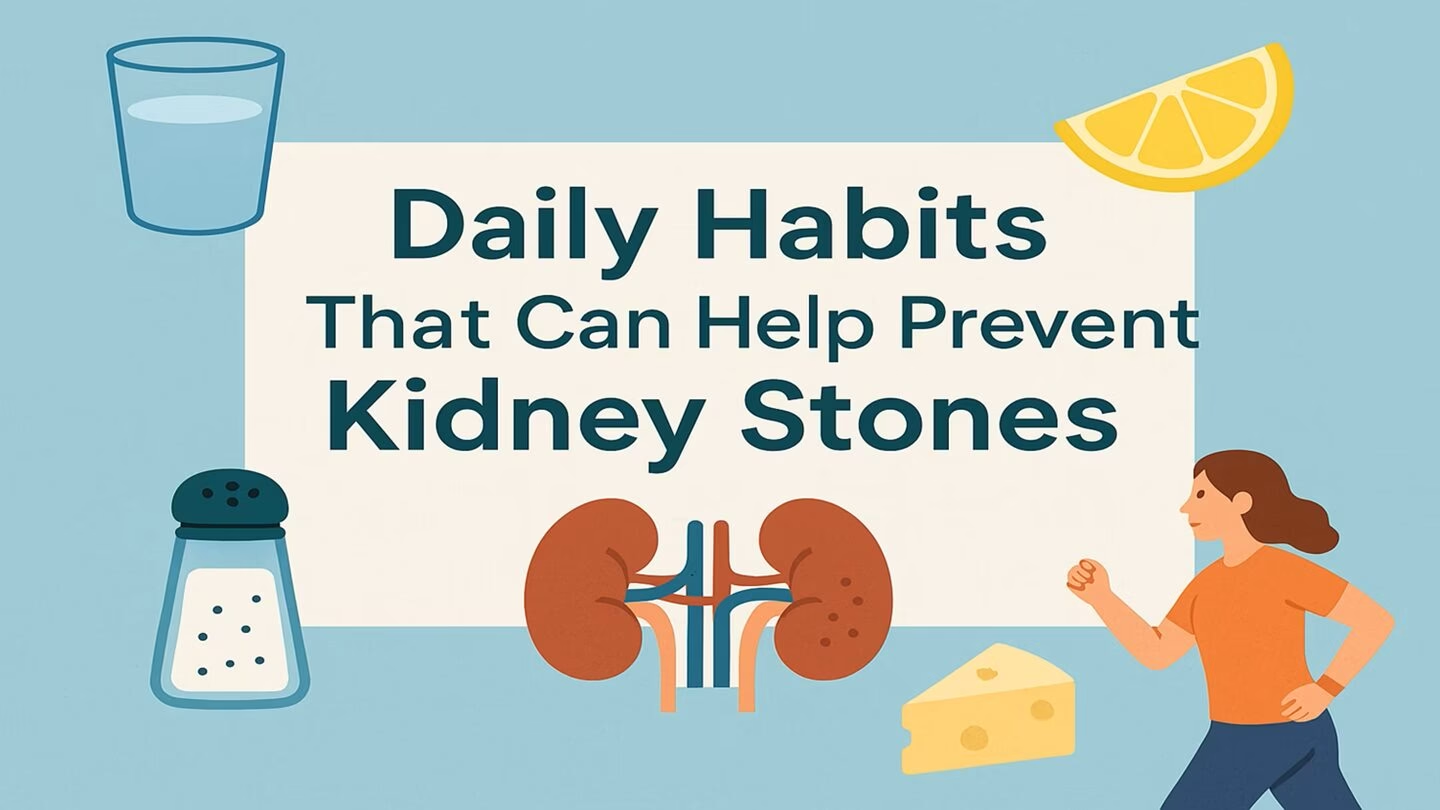Sleep is more than just rest—it’s a critical biological function that affects nearly every aspect of your physical and mental health. In today’s fast-paced world, sleep is often sacrificed, leading to a range of health issues that can impact your body weight, emotional well-being, and immune strength. Let’s explore how sleep influences weight, mood, and immunity, and what you can do to improve it.
⚖️ 1. Sleep and Weight: The Hormonal Balance
🧠 Hormonal Disruption
Sleep plays a major role in regulating hormones that control hunger and appetite—ghrelin (hunger hormone) and leptin (satiety hormone). When you don’t sleep enough:
- Ghrelin increases, making you feel hungrier.
- Leptin decreases, making it harder to feel full.
This hormonal imbalance can lead to overeating, late-night cravings, and a higher likelihood of choosing high-calorie, processed foods.
🔥 Metabolism and Fat Storage
Sleep deprivation affects your metabolism, slowing down calorie burning and increasing fat storage—especially belly fat. It also decreases insulin sensitivity, which can lead to weight gain and eventually type 2 diabetes.
🏃♀️ Reduced Physical Activity
When you’re tired, you’re less motivated to exercise. Poor sleep leads to:
- Decreased energy and endurance
- Slower recovery from workouts
- Lower overall activity levels
😊 2. Sleep and Mood: The Brain’s Reset Button
🌀 Emotional Stability
Your brain processes emotions and memories while you sleep. Inadequate sleep can lead to:
- Irritability
- Anxiety
- Depression
- Mood swings
Just one night of poor sleep can make you more reactive and emotionally sensitive the next day.
🧠 Mental Clarity and Focus
Lack of sleep impacts your cognitive functions, such as:
- Concentration
- Problem-solving
- Decision-making
- Memory
This can lead to lower productivity and poor performance at work or school.
🌙 Sleep and Mental Health Disorders
Chronic sleep problems are linked with:
- Depression
- Bipolar disorder
- ADHD
- PTSD
Good sleep is often part of treatment for these conditions.
🛡️ 3. Sleep and Immunity: Your Body’s Defense System
🦠 Immune Function
Sleep strengthens the immune system by allowing your body to:
- Produce cytokines, proteins that fight infections and inflammation.
- Increase white blood cell production to defend against pathogens.
When you don’t sleep well, your immune system is weakened, making you:
- More likely to catch colds and flu
- Slower to recover from illness
- Less responsive to vaccines
💉 Chronic Inflammation
Poor sleep can trigger chronic inflammation, which is associated with:
- Heart disease
- Autoimmune disorders
- Cancer
- Diabetes
🕒 How Much Sleep Do You Need?
| Age Group | Recommended Sleep Duration |
|---|---|
| Adults (18–64) | 7–9 hours |
| Teenagers | 8–10 hours |
| Children (6–12) | 9–12 hours |
| Older adults (65+) | 7–8 hours |
Quality matters just as much as quantity. Frequent interruptions, light sleep, or sleep disorders like sleep apnea can still cause health problems.
🌟 Tips for Better Sleep
- Stick to a sleep schedule: Go to bed and wake up at the same time every day—even on weekends.
- Create a bedtime routine: Dim lights, turn off screens, and do relaxing activities like reading or deep breathing.
- Limit caffeine and heavy meals before bed.
- Get sunlight during the day to regulate your sleep-wake cycle.
- Keep your room cool, dark, and quiet.
- Avoid screens at least 1 hour before bed—blue light disrupts melatonin production.
🧠 Final Thoughts
Sleep is a powerful regulator of your weight, mood, and immune system. While diet and exercise are essential to good health, sleep is the foundation that keeps everything else functioning optimally. Prioritizing rest is not a luxury—it’s a necessity.
If you’re consistently having trouble sleeping, talk to your healthcare provider. Small changes in your routine can make a big difference in your well-being.
ABOUT THE AUTHOR
Dr. Alex Sam is a passionate healthcare professional with an MBBS and MRCGP degree and a strong commitment to modern medicine. Known for his empathetic approach, he emphasizes listening to his patients and understanding their unique health concerns before offering treatment. His areas of focus include family medicine and general health management, where he strives to provide holistic care that improves both physical and mental well-being. Dr. Alex is also a strong advocate for preventive screenings and early detection of diseases, ensuring his patients maintain healthier lives. With a calm demeanor and deep medical insight, he has earned the trust of both his patients and peers in the medical community.














Add comment